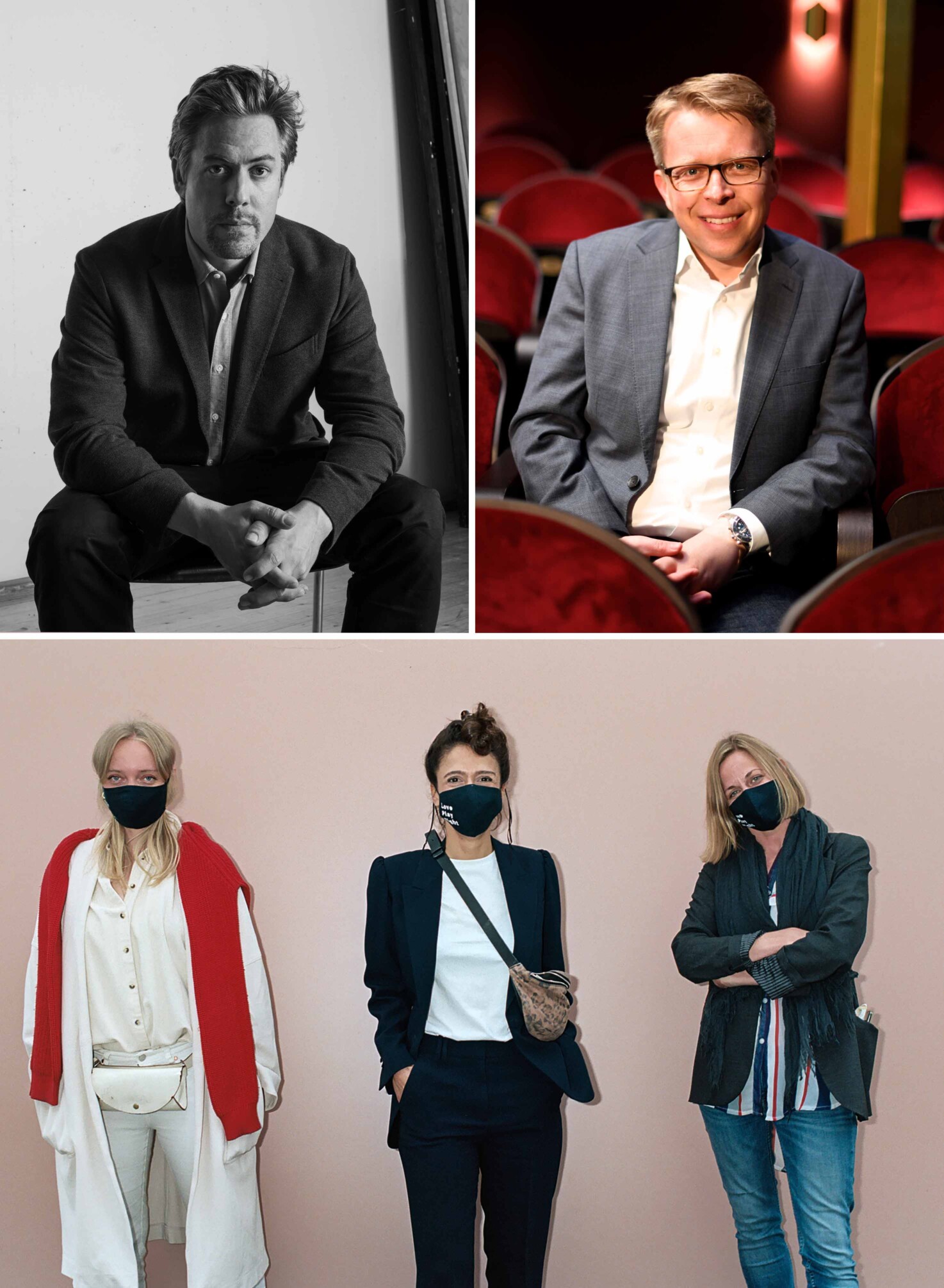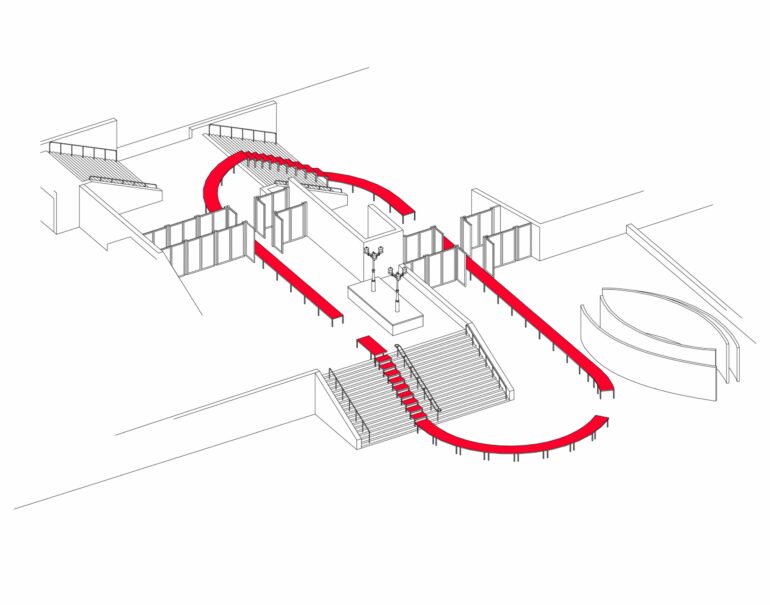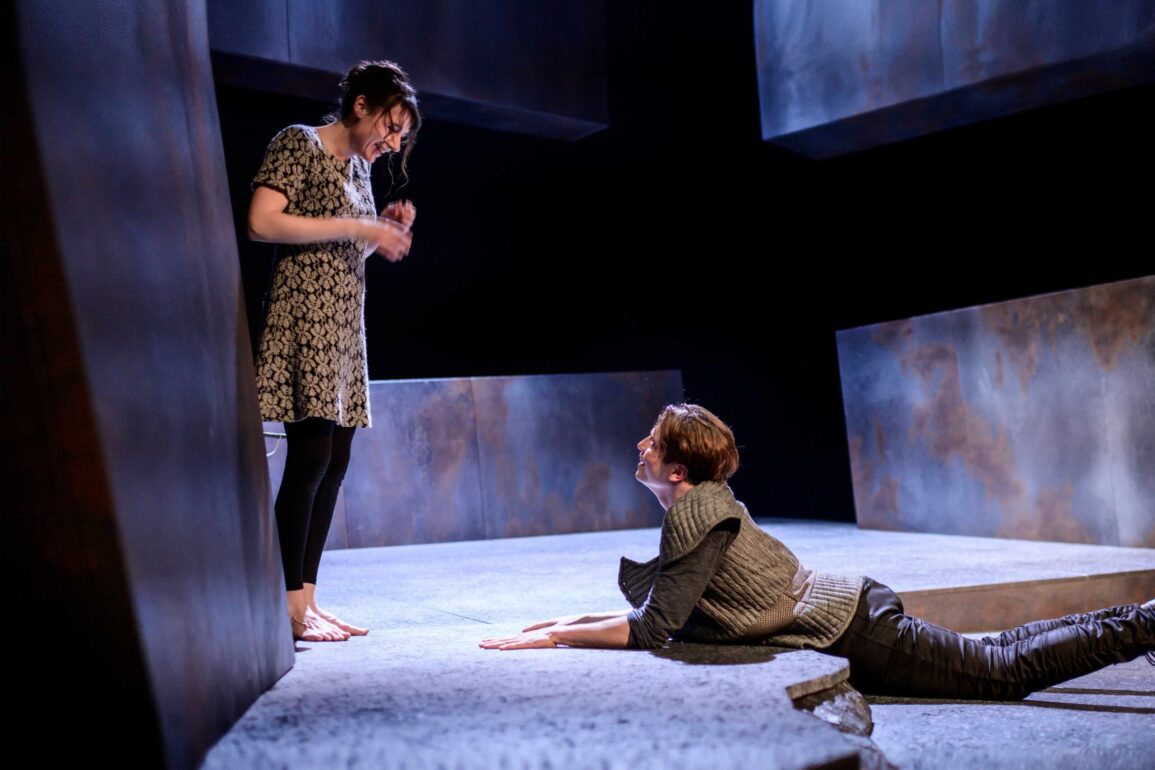No applause, no laughter and no tears: theatres lost their audiences overnight. Their seats were empty, their spotlights dimmed. Audiences and the state, as well as donations and charities, are ensuring that this experience can continue once the crisis has passed.
‘Every theatre had the same experience: it takes no time at all to shut down,’ says Benedikt von Peter. The new director of Theater Basel, he took up his post during this unprecedented time. ‘How can we put on plays now?’ he asks. After all, everyone has slowly come to the realisation that the situation is going to be around for a while. Despite all the challenges facing him, Benedikt von Peter has no doubt that ‘it’s right, and important, that we keep putting on theatrical productions during this period. Going to the theatre is just as important as going shopping,’ he says. Society at large is currently grappling with major upheaval, he says. People need to be consoled, and they need art and theatre. As a result, Theater Basel’s troupe are thinking about how they can put on plays in the present situation. After all, it’s not just about the artistic task itself: they need to plan out the financial situation, too. Planning is a long-term job, and that in itself poses a particular challenge: commitments are made three years in advance. ‘We’ve already spent the money, in truth,’ he says. The theatre has planned out a range of scenarios for the new season, looking at various configurations – including what happens if things need to be cancelled. In any case, they simply can’t wait for the curtain to go back up for the first time. As the director says, ‘We’ll kick things off with Saint François d’Assise, which is a true tour de force. It will have a healing effect.’
Requirements changing daily
TOBS, Theater Orchester Biel Solothurn, had reopened operations to a limited extent even before the summer break. ‘Thanks to the restrictions being relaxed at the start of June, we were able to offer an alternative programme that was very well received. It was small, but nevertheless top-class,’ says director of operations Florian Schalit. TOBS was able to see that their audience had missed them: there was a good deal of demand. But the circumstances were challenging, with new plans required every day and hygiene concepts needing to be adjusted time and again. That said, art had enough flexibility to bend to these new requirements: ‘For example, we came up with the idea of our musicians putting on small concerts, in compliance with distancing measures, in gardens or care homes, so they could keep in touch with people.’ On a more optimistic note, TOBS is returning to its regular plans from the autumn and hopes that the situation will return to normal soon.
Stagings from the previous season will be brought back into the programme, too. Romeo and Juliet was one play that fell victim to the lockdown. It was supposed to feature authentic fencing scenes that Florian Schalit could talk about for days. External funding is needed to enable a production like this to go ahead, and to this end, TOBS works with charities large and small. ‘Our budget is often exceptionally squeezed, so we’re grateful for every extra franc we can get,’ he says. Donations and contributions from patrons make up a healthy share of this external funding. ‘Our seven supporters’ associations enable us to put on projects we wouldn’t otherwise be able to afford, thanks to membership contributions and project-based fundraising,’ he says. For example, the Friends of the Stadttheater Solothurn raised around 60,000 Swiss francs for the production of Romeo and Juliet. These additional funds made it possible to put together a larger-than-normal cast – and hire a specialist coach for the fencing scenes.

Breaking the fourth wall
The consequences of recent events have been felt by Switzerland’s smallest performing arts venue: the Neumarkt Theater in Zurich is expanding what it offers so it can break through the fourth wall, as it were. ‘Our work in the digital sphere uses the internet as the stage for pre- and post-performance events, as a space for transmedia story-telling, as a format that transcends boundaries,’ says Hayat Erdoğan, one of the three directors. In addition, their website is being refreshed and souped up. The theatre has put together a film for people to watch online. This doesn’t just look at the seasons of the past, including lockdown: it also offers a glimpse into the season to come. It’ll all kick off on 3 September with a video installation. ‘Three generations of activists come together in this piece, Protest 1980, which was a challenge in terms of production,’ explains Hayat Erdoğan. ‘Some of these actors fall within the high-risk group,’ she explains, referring to the additional challenges posed by the present situation. There is a clear message for the upcoming season: masks on, curtain up! There is no going back to the time before coronavirus. The same applies to their work in the digital sphere, which is being taken seriously. ‘It’s not just about bridging the coronavirus period,’ says Hayat Erdoğan. Investment needs to be made in this area. At the moment, there’s hardly any mobile phone reception in the theatre: it’s basically a dead spot. They desperately need to spend money on technology, with investments in technical expertise planned, as well as in video art and podcasts. Hayat Erdoğan says: ‘We’re going to approach charities so we can make this happen.’

Sociocultural spaces
Theater Basel also relies on external funding. ‘We’re partnering with an array of charities,’ says Benedikt von Peter, discussing the execution of the Foyer Public project. These partnerships have been lined up since the beginning of the year. The project will launch on 20 November, when the theatre’s foyer will be opened to the public. ‘It’s about using the space for sociocultural purposes,’ he says. When he was putting together the funds for the project, he met lots of charities’ representatives in person. ‘It was a really lovely chance to get to know these people,’ he says. He had lots of meetings and lots of exciting encounters, even if not all of them ended in support being provided. It would also be going too far to reduce collaboration with charities to purely the financial aspect. That wouldn’t reflect the added value that these discussions bring. Florian Schalit agrees with this multi-layered effect: ‘We have regular, fruitful discussions with various charities’ representatives.’ To illustrate this with a concrete example, he mentions the support offered to young, talented individuals at TOBS, which is made possible by a charity. Personal connections are frequently forged. ‘Our audience and our supporters’ associations know that we rely on charities’ support, so they pass on valuable tips time and again,’ he says. These charities get involved in various guises, whether on an individual project or on a regular basis. TOBS has the advantage of having its own charity as an umbrella for its theatre, opera and concert operations. As a charitable foundation, it is tax-exempt and can accept direct donations. This has paid off over the last few months in particular. ‘Numerous ticketholders decided not to accept a refund for cancelled performances and instead donated the amount to us,’ says Florian Schalit.

Expenses and revenue
Benedikt von Peter in Basel sets great store by personal contact when it comes to generating funds for projects. Despite the effort required, he takes the time to present his projects himself. ‘You’ve got to meet people at some stage,’ he says. It’s about getting to know them: it’s not always immediately obvious what charities’ criteria are. Filling out an application can take a lot of time and be a very abstract process. By contrast, receiving assistance during the project, exchanging ideas, and engaging in regular discussions have the benefit of building up a sense of understanding. ‘You both get to understand how the other works.’ External funding is taking on an increasingly important role. How will theatres finance themselves in the future? Approaching projects with greater nuance will be key. ‘Just putting on plays isn’t enough anymore,’ says Benedikt von Peter, discussing how requirements have become more complex. The aim is for theatres to handle some of the teaching work for schools, putting drama across to students. This is intended to take the form of a workshop, with a participation-based approach: it’s about the experience. Experience-based dining is in demand, and so too are interactive experiences for viewers. It was possible to pick up on these trends during the coronavirus crisis, as well, with lots of theatres offering productions online. ‘People showed a lot of interest at the start, out of curiosity,’ says Benedikt von Peter. But it disappeared. ‘Nobody’s watching them anymore. After a month, the number of hits had reached rock bottom. People are missing the physical space of the theatre itself,’ he says.


